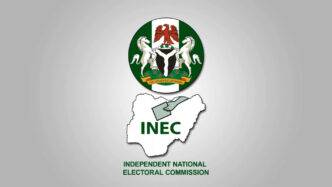According to the Independent National Electoral Commission (INEC), 84,004,084 voters have registered to vote in the coming 2023 general elections in the country.
The figure was as at July 15, 2022.
Here is the breakdown of total number of registered voters across Nigeria’s 36 States and the Federal Capital Territory (FCT) of
Abuja.
S/N STATES NO OF VOTERS
1 Abia 1,932,892
2 Adamawa 1,973,083
3 Akwa Ibom 2,119,727
4 Anambra 2,447,996
5 Bauchi 2,462,843
6 Bayelsa 923,182
7 Benue 2,480,131
8 Borno 2,315,956
9 Cross River 1,527,289
10 Delta 2,845,274
11 Ebonyi 1,459,933
12 Edo 2,210,534
13 Ekiti 909,967
14 Enugu 1,944,016
15 FCT 1,344,856
16 Gombe 1,394,393
17 Imo 2,272,293
18 Jigawa 2,111,106
19 Kaduna 3,932,492
20 Kano 5,457,747
21 Katsina 3,230,230
22 Kebbi 1,806,231
23 Kogi 1,646,350
24 Kwara 1,406,457
25 Lagos 6,570,291
26 Nasarawa 1,617,786
27 Niger 2,390,035
28 Ogun 2,375,003
29 Ondo 1,822,346
30 Osun 1,680,498
31 Oyo 2,934,107
32 Plateau 2,480,455
33 Rivers 3,215,273
34 Sokoto 1,903,166
35 Taraba 1,777,105
36 Yobe 1,365,913
37 Zamfara 1,717,128
Total 84,004,084
NEW VOTERS 15,170,608
The Northwest currently has the highest number of registered voters at 20,158,100. That hands the Northwest 24% of the registered vote total.
The southwest region comes second with 16,292,212 registered voters (19.39%), while the north-central has 13,366,070 registered voters (15.91%), and the south-south has 12,841,279 registered voters (15.29%).
The northeast region and the southeast region come last with the total number of registered voters with 11,289,293 (13.44%) and 10,057,130 voters (11.97%) respectively.
Of the total, there are more registered male voters (44,405,439) than female voters (39,598,645). The male population of registered voters make up 52.86% of the total voter register with registered female voters making up the remaining 47.14 per cent.
Source – INEC

















